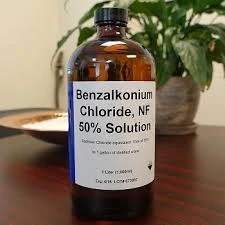Effective Solutions for Controlling Water Scale Buildup in Industrial Systems
Understanding Water Scale Inhibitors Importance and Applications
Water scale, also known as limescale or mineral scale, is a common problem in water systems that can severely impact efficiency and longevity in various applications. It primarily consists of calcium carbonate, calcium sulfate, and other mineral deposits that accumulate over time, especially when water is heated or subjected to evaporation. The formation of scale can lead to reduced water flow, increased energy costs, and potential damage to equipment, making the use of water scale inhibitors essential in many industries.
The Science Behind Water Scale Formation
Water scale forms when water is supersaturated with minerals, particularly in conditions of high temperature or evaporation. As water is heated – for example, in boilers and water heaters – the solubility of certain minerals decreases, causing them to precipitate out of the water. This precipitated material can adhere to pipes, heat exchangers, and other equipment, leading to blockages and reduced efficiency. Regular maintenance and cleaning are required to manage scale buildup, but these methods can be expensive and labor-intensive.
How Water Scale Inhibitors Work
Water scale inhibitors are chemical additives designed to prevent the formation of scale in water systems. They operate through several mechanisms, including
1. Threshold Inhibition These inhibitors can prevent the crystallization of scale-forming minerals by altering their precipitation process, allowing them to remain dissolved even at higher concentrations.
2. Dispersants By breaking down larger aggregates of scale-forming minerals into smaller particles, dispersants keep them suspended in the water, preventing them from forming solid deposits.
3. Crystal Modifiers Some inhibitors alter the structure of the crystals that form, making them less likely to adhere to surfaces and allowing them to be carried away by the flow of water.
Common materials used as water scale inhibitors include polyphosphates, phosphonates, and organic polymers
. The choice of inhibitor depends on the specific characteristics of the water system, such as temperature, mineral content, and potential environmental impact.water scale inhibitor

Applications of Water Scale Inhibitors
Water scale inhibitors find applications in various industries, including
- Industrial Water Treatment In power plants, refineries, and chemical processing facilities, scale buildup can lead to significantly increased operational costs. Inhibitors are essential for maintaining operational efficiency and reducing downtime.
- HVAC Systems Heating, ventilation, and air conditioning systems often encounter scale issues due to the heating of water. The use of scale inhibitors can help maintain system efficiency and prolong equipment lifespan.
- Residential Water Systems Many households use water softeners or scale inhibitors to combat mineral buildup in plumbing systems and appliances, reducing the frequency of maintenance and repair.
- Food and Beverage Industry In food processing and beverage production, water quality is paramount. Water scale inhibitors help maintain the integrity of equipment and ensure compliance with health regulations.
Environmental Considerations
While water scale inhibitors are effective, it is important to consider their environmental impact. Some traditional inhibitors can pose risks to aquatic ecosystems if discharged improperly. As sustainability becomes increasingly vital in industrial processes, the development of eco-friendly and biodegradable scale inhibitors is gaining attention.
Conclusion
Water scale is a critical issue affecting a multitude of sectors, leading to operational inefficiencies and increased costs. Water scale inhibitors offer an effective solution to manage and prevent scale formation, ensuring the longevity and performance of water systems. By understanding the mechanisms and applications of these inhibitors, industries can optimize their processes, reduce maintenance requirements, and move towards more sustainable practices. As the quest for efficiency continues, the role of water scale inhibitors will remain pivotal in various water-dependent applications.
-
Water Treatment with Flocculant Water TreatmentNewsJun.12,2025
-
Polymaleic AnhydrideNewsJun.12,2025
-
Polyaspartic AcidNewsJun.12,2025
-
Enhance Industrial Processes with IsothiazolinonesNewsJun.12,2025
-
Enhance Industrial Processes with PBTCA SolutionsNewsJun.12,2025
-
Dodecyldimethylbenzylammonium Chloride SolutionsNewsJun.12,2025





